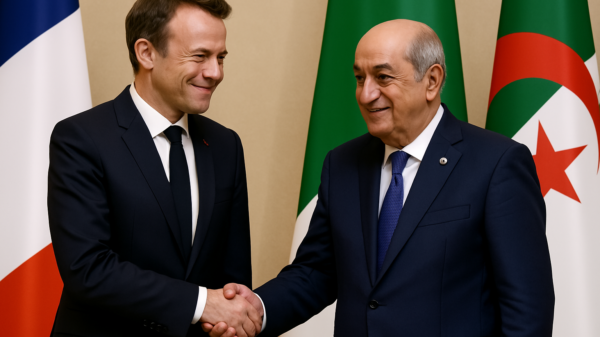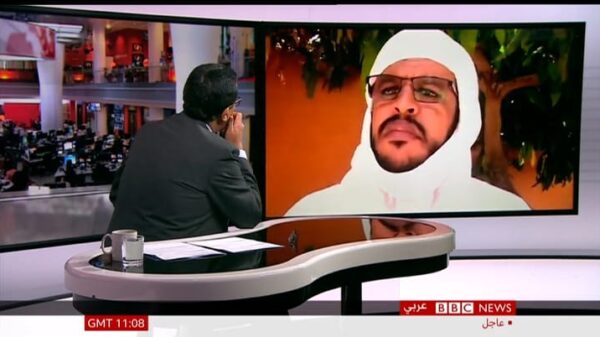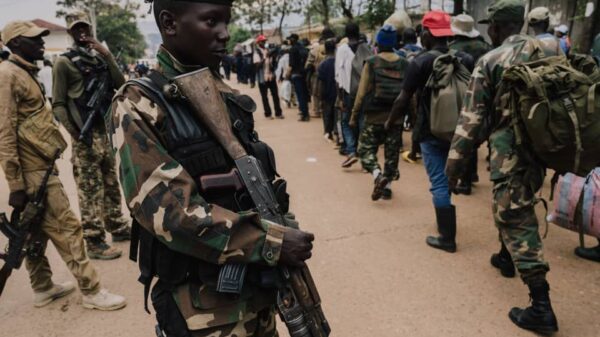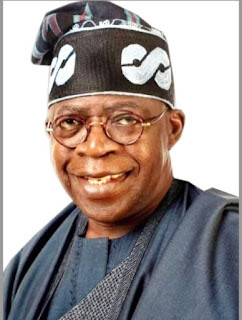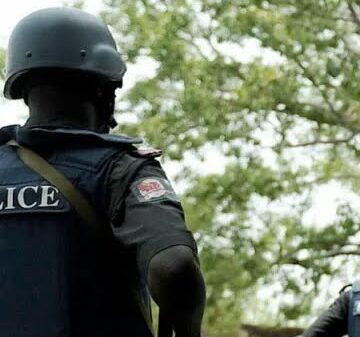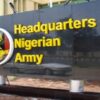Ghana needs peace in its todau (December 7, 2024) general election which will herald a new president and 276 legislators.
The general election would be the ninth since the 35 million people of the gold-rich West African nation returned to democratic governance in January 1993.
Former President of Botswana, Dr Mokgweetsi Masisi, will lead a team of Commonwealth election observers to Ghana, where the outgoing President Nana Akufo-Addo sought for peaceful and transparency conduct.
The Commonwealth Secretary-General, the Rt Hon Patricia Scotland KC, composed a 16-person team on 21 November, after receiving an invitation to do so from the Electoral Commission of Ghana.
The Electoral Commission of Ghana has qualified 12 candidates for the presidential race which in reality is between the candidates of the country’s two rival parties, the National Democratic Congress (NDC) and the New Patriotic Party (NPP).
The election is being conducted in a country where there is deepening polarisation along ethnic and religious lines and in harsh economic environment triggered by crippling national debt, spiraling inflation and high unemployment, main issues that might determine the outcome of the election.
Outgoing President Nana Akufo-Addo of the NPP is term-limited. His party, now led by Vice President Mahamudu Bawumia, is campaigning to win an unprecedented third term in government, while the NDC, led by former president John Mahama, is determined to return to power and avoid becoming the first party to stay in opposition three elections in a row—an outcome that could have existential consequences for the NDC in Ghana’s winner-takes-all political system.
Characteristic of elections in West African nations, there had been apprehension over the neutrality and fairness on the part of the electoral commission and the judiciary but President Akufo-Addo has assured the contenders of peace, equity and fairness.
Pundits say the elections will test the resilience of the country’s democracy, stability and peace in a politically turbulent neighbourhood where Burkina Faso had been threading under military dictatorship.
President Akufo-Addo, who completes his mandatory two terms by 7 January 2025, has promised to leave office through peaceful and credible general election.
“I came (to the office) as a result of a peaceful and credible election, and I want to go out through the same process,” to entrench the democratic tradition in Ghana.
He told the visiting ECOWAS Election Observation Mission led by former Nigerian Vice-President Mohammed Namadi Sambo during an audience at Jubilee House, Accra on 3rd December. 2024.
President Akufo-Addo said that ECOWAS as a community has been facing “challenges and negative developments”, including violent extremism and military incursions in politics, especially the decision of three-member States (Burkina Faso, Mali and Niger) to quit the regional economic bloc.
“The responsibility is on us to respond to these challenges with the conduct of free, fair and credible elections,” he said. He added that the presidential and parliamentary elections in Ghana, a founding and active member of ECOWAS, would be of particular resonance.
He assured that Ghana has institutions with experience in conducting credible elections under its fourth Republic from 1992, noting that the country values the contributions of ECOWAS, chairing its Authority of Heads of State and Government in the past.
The ECOWAS delegation included the Deputy Head of Mission, Baboucarr Blaise Jagne, Gambia’s former Foreign Minister, Ambassador Abdel-Fatau Musah, ECOWAS Commissioner for Political Affairs, Peace and Security, who is leading an Electoral Technical Support Team and Ambassador Mohamed Lawan Gana, ECOWAS Resident Representative in Ghana.
The Commonwealth Secretary-General, Patricia Scotland, said also that the “deployment of observation mission underscores commitment to supporting democratic processes in Ghana by providing an impartial assessment of the electoral process.
“We aim to further strengthen public trust and civic participation in line with the Commonwealth Charter which recognises ‘the inalienable right of individuals to participate in democratic processes, in particular, through free and fair elections in shaping the society in which they live.”
The mandate of the Commonwealth Observer Group (COG) is to observe the preparations for the election, the polling, counting and results process, and the overall electoral environment.
The observers will assess the conduct of the process as a whole and, where appropriate, make recommendations for the strengthening of the electoral system in Ghana. And also determine whether the elections have been conducted according to the standards.
The monitoring may be antidotes to Ghana’s elections that have always been a fraught affair, a reflection of the intensity of the rivalry between the country’s two main political parties, Prof. Anselem Ajakaye, a public affairs analyst, said in Abuja.
He saw the 1992 election that heralded Ghana’s current Fourth Republic, which NPP boycotted the December parliamentary elections after rejecting the results of the preceding November presidential elections, won by the NDC’s late Jerry John Rawlings.
Of the last eight general elections, three (2000, 2008, 2016) produced a party turnover in government and two (2012, 2020) gave rise to a presidential election petitions before the Supreme Court, which were settled, in each case, in favour of the originally declared winner.
However, in all instances, transfer of power had been peaceful and orderly and with no attempt to sabotage the constitution’s two-term limit on presidential tenure as attempted in some other African nations.
The candidate of NPP for the 2024 presidential elections is Dr Mahamudu Bawumia, 61, the current two-term Vice President to President Akufo-Addo, was a former deputy governor of the Central Bank.
Bawumia was considered a political outsider when he was first picked by Akufo-Addo as his running mate on the NPP ticket for the 2008 presidential elections. After losing both the 2008 and 2012 presidential elections to the NDC, the pair eventually won the 2016 elections and was re-elected in 2020.
The economist has played the role of head of the Akufo-Addo administration’s economic management team since 2017—a role conventionally reserved for Ghana’s vice presidents.
He emerged as the party’s 2024 presidential candidate after a divisive internal primaries campaign, which ended with one of the main contestants, former trade minister Alan Kyerematen, resigning from the party and launching an independent bid for the presidency.
Bawumia, the first Muslim, to be selected as the presidential candidate of a major political party in Ghana, is also the first NPP presidential candidate to come from outside the party’s Twi-Akan ethno-linguistic base.
Bawumia has chosen Dr. Matthew Opoku Prempeh, 56, a Christian as his running mate. Prior to his selection as vice presidential candidate, Prempeh was minister of energy in the Akufo-Addo administration (and formerly minister of education) and a member of parliament for one of the NPP’s strongholds in Kumasi, the party’s traditional home.
For the fourth time in a row, the NDC’s presidential candidate is Mr John Dramani Mahama, 65 who was a former Vice President (2009-2012).
Mahama served the remainder of the uncompleted term of the late President John Atta Mills, following Mills’ death in office in July 2012. He was subsequently elected to his own four-year term as president in 2013 after defeating Akufo-Addo (NPP) in their first direct face-off.
Mahama lost his bid for re-election to Akufo-Addo in 2016, becoming the only Ghanaian president thus far to suffer defeat after one term in office. He contested and lost again to Akufo-Addo in 2020.
His retention by the NDC as its presidential candidate for the December 2024 elections sets up the first presidential contest in which both candidates of the two major parties are from the historically marginalised North.
For the second time, Mahama has chosen as his running mate the retired academic and his former minister for education, Prof. Jane Naana Opoku-Agyemang, 72.
In a significant step towards enhancing the transparency of the electoral process, a citizen-driven digital platform called iCollate has been launched to encourage citizens’ participation in Polling Stations Results collation.
The App comes at a critical moment in Ghana’s democratic journey, offering citizens a transparent and inclusive tool to hold the electoral process accountable.
The iCollate platform is designed to empower Ghanaians living everywhere to actively participate in monitoring and collating results to enhance the integrity of the electoral process.
Meanwhile, a founding member of NPP, Dr. Nyaho Nyaho-Tamakloe, has called on the Electoral Commission (EC) and national stakeholders to uphold and protect Ghana’s democratic peace.
In a statement issued on December 3, Dr. Nyaho-Tamakloe appealed to prominent national figures to fulfill their obligations in ensuring stability and fairness during this critical period.
Addressing Jean Mensa, Chairperson of the Electoral Commission (EC), he emphasized the EC’s pivotal role in conducting credible elections, urging her to maintain the institution’s longstanding legacy of integrity, transparency, and impartiality.
“You are not the first to hold this esteemed office, and you will not be the last. The legacy of this institution has always been one of fairness, transparency, and impartiality,” Dr. Nyaho-Tamakloe stated.
Sensing the international flavour of the polls, Dr Mohamed Ibn Chambas, the Chairman of the African Union High Level Panel Sudan, called on candidates to obey the rule of law throughout the electoral process.
Chambas made the plea in Accra while delivering the keynote address at the signing of a peace pact by the candidates said that the pact was a commitment to uphold the principles of fair play.
According to Chambas, the pact is a wake-up call to party faithful and followers of candidates that there is no place for violence in democratic elections.
“When the Heads of State of Africa adopted the Silencing the Guns Initiative, they sought through it to build an Africa at peace with itself and with the rest of the world.
“Across the continent, one of the triggers of conflict has been poorly conducted elections,” he said.
Chambas said African leaders were desirous of bequeathing to present and future generations a peaceful continent which would focus on underdevelopment, poverty and inequalities.
He said Ghana had stood out as a shining example of best practices of election management systems, technology, innovation, processes and procedures and, warned stakeholders against complacency, saying the burden had now shifted to the Electoral Commission, Ghana Police Service and supporting security agencies, political activists, media and judiciary.







